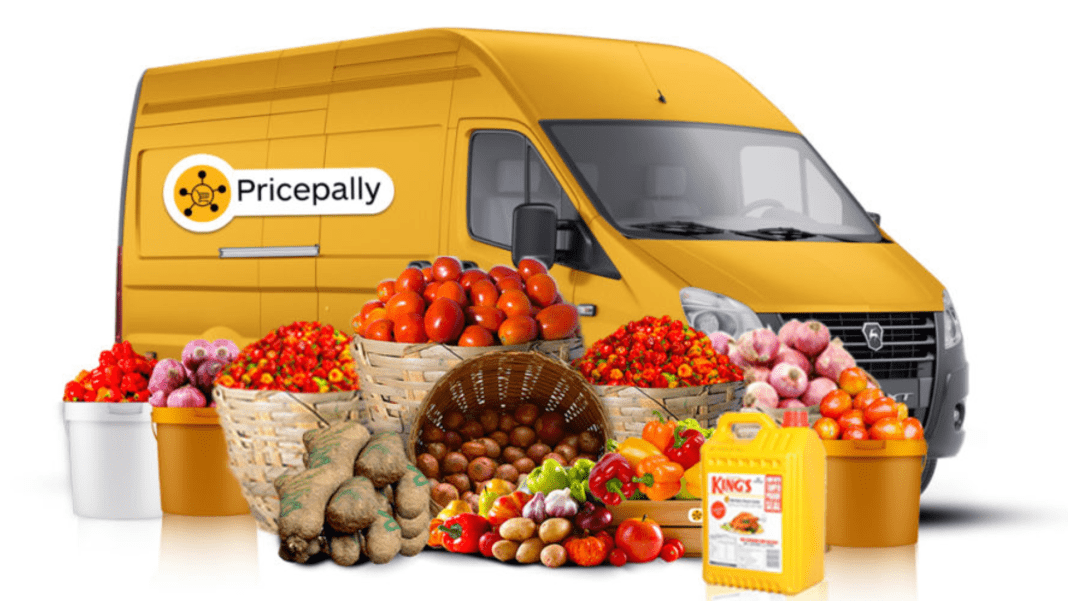Pricepally, an online grocery store based in Nigeria specializing in fresh produce and packaged food, secured $1.3 million in seed funding. The funding round was supported by Samurai Incubate, a Japanese venture capital firm that had previously participated in the startup’s pre-seed round in 2021. Other contributors to the funding include SOSV, ELEA, Hi2 Global, Chui Ventures, and David Mureithi, a former executive at Unilever.
After securing the latest funding, the startup now joins a small group of African food e-commerce companies that have successfully raised funds this year. This includes Yebo Fresh in South Africa and Terraa in Morocco, highlighting a trend where venture capitalists are increasingly cautious in expanding their operations.
Pricepally has announced its intention to utilize the funding to broaden its reach beyond the three cities it presently caters to in Nigeria. Additionally, the startup aims to reintroduce group buying as part of its commitment to providing consumers with affordable food options. The company ensures efficient delivery of ordered produce through its digital platforms, such as the app and WhatsApp chatbot, offering same- or next-day delivery. While maintaining fulfillment centers within its current operational cities, Pricepally outsources delivery services.
In 2019, Luther Lawoyin (CEO), Deepak Bansal (CTO), Mosun Lawoyin (CXO), and Jummai Abalaka (COO) founded Pricepally with the goal of mitigating the impact of rising inflation, shortages, and escalating prices on food. Their mission was to lower the cost of food, enhance availability, and maintain price predictability.
According to Luther Lawoyin, Pricepally acquires fresh produce directly from farmers, including those with whom the startup has contractual agreements, and packaged food from manufacturers. The pricing of the produce is frequently subject to negotiation. This, combined with the use of short food supply chains, contributes to maintaining affordable costs for the supplies.
“We have more control over quality and supply because we have specific farmers supplying specific products. We also carry out price research across local markets and our prices are a lot fairer and that’s just because we’ve taken out several layers of middlemen. The idea now going forward is for us to capitalize on our sourcing strength to solve one of Nigeria’s biggest problems currently, which is food insecurity,” said Lawoyin.
“In many ways we are more than just selling products. We are bringing transparency and visibility into the market.”
Lawoyin attributes Pricepally’s consistent growth in customer accounts and impressive customer retention to transparency. Over 80% of its revenues come from existing buyers, serving as a testament to the credibility of its value proposition.
Lawoyin stated that Pricepally primarily focuses on retail buyers, constituting 70% of its customer base. This preference is attributed to the fact that individual consumers pay upfront, are more cost-effective to acquire, and offer higher profit margins compared to businesses.
The startup foresees that the reintroduction of online group buying, allowing retail customers to unite and access wholesale prices, will expedite its growth amidst the ongoing challenges of rising food prices. Additionally, the company aims to attract new customers through April, its recently launched WhatsApp chatbot, specifically targeting the mass market in Nigeria, a country with one of the highest WhatsApp usage rates globally.
Commenting on the deal, Rena Yoneyama of Samurai Incubate said, ”The great thing about Pricepally is their execution ability. There are still many difficulties with e-commerce in Nigeria, and many things that work normally in other major African cities often do not work due to a lack of both hard and soft infrastructure and trust issues.”
“However, Pricepally has worked hard to improve the quality of service, increase customer satisfaction, earn the trust of customers, and has built up a very high percentage of repeat customers. Their healthy unit economics and continuous business growth proves that.”


